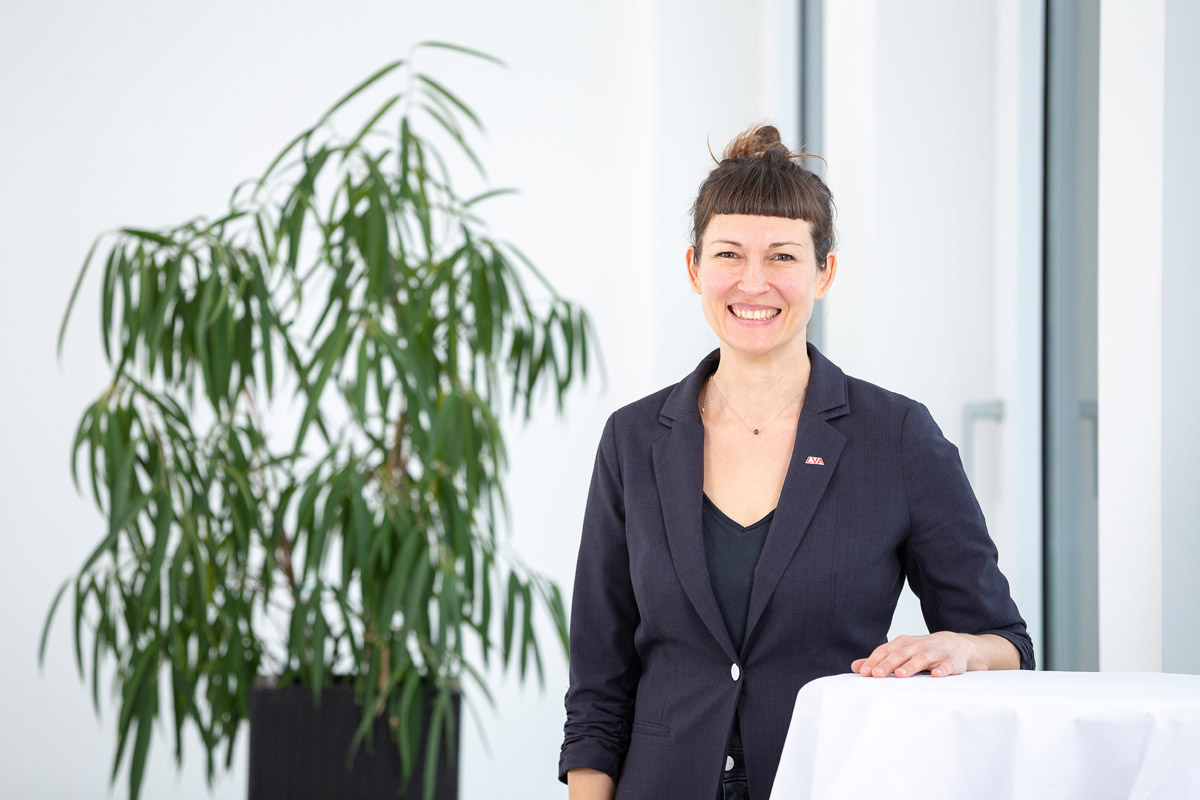Unsere Innovationsangebote
ACR (Austrian Cooperative Research)
Der ACR (Austrian Cooperative Research) ist der Dachverband der kooperativen außeruniversitären Forschungsinstitute in Österreich. Als Mitglied des ACR unterstützen wir vor allem kleine und mittlere Unternehmen im Bereich der anwendungsorientierten Forschung, Entwicklung und Innovation.
Bei Fragen zum Thema Forschung und Entwicklung empfiehlt es sich, unseren internen Innovations-Agenten anzusprechen bzw. online zu kontaktieren.
Plattform Lebensmittelsicherheit
Lebensmittelsicherheit gilt als eines der zentralen Zukunftsthemen. Durch die Kooperation der vier Institute Lebensmittelversuchsanstalt, ofi, OMV VG und AEE INTEC wird die gebündelte Kompetenz für KMU zugänglich und in Form von anwendbarer F&E umgesetzt.
Einzelne Themen können dabei international positioniert werden, Projekte auf nationaler und europäischer Ebene für KMU zugänglich gemacht werden.
Für die Institute ergeben sich Synergien im Bereich Kund:innenbetreuung, Analytik und im Aufbau von Know-how zu Risiken bei Lebensmitteln. Sie etablieren sich als die Anlaufstelle bei Fragestellungen zu angewandter Forschung und für aktuelle Problemlösungen im Bereich Lebensmittelsicherheit.
KMU profitieren auf zwei Ebenen: Zugriff auf die gebündelte Lösungskompetenz der Institute und damit höhere Effizienz und bedarfsangepasste Lösungen für die praktische Anwendung.
Aktuelle Projekte
FIELDS

Addressing the current and Future skIll needs for sustainabilty, digitalization, and the bio-Economy in AgricuLture: European skills agenDa and Strategy
Der Land- und Forstwirtschafts- sowie der Lebensmittelsektor gelten naturgemäß als sehr traditionsbehaftet. Dennoch sind diese in der heutigen Zeit vor große Herausforderungen, wie die Globalisierung der Märkte, die steigende Konkurrenz und die wirtschaftliche Unsicherheit, gestellt. Verstärkend dazu wirkt die gleichzeitig ansteigende Nachfrage an Nahrungs- und Futtermittel, während der Klimawandel noch weitere Unsicherheiten mit sich bringt. Die Wandlung vom herkömmlichen zum nachhaltigen Land-, Forstwirtschafts- oder Lebensmittelbetrieb ist ein komplexer Prozess, die einen strategischen Ansatz braucht. In diesem muss auch die Rolle der Bauern neu definiert werden: vom reinen Rohstoff- und Nahrungsmittelerzeuger hin zum klugen Manager der Bioressourcen. Für die Entwicklung eines strategischen Ansatzes ist es von größter Wichtigkeit, den bestehenden und entstehenden Bedarf an Qualifikationen in den Bereichen Bioökonomie, Nachhaltigkeit und Digitalisierung zu erkennen. Das ist eine Lösung, um in Europa die Land- und Forstwirtschaft sowie den Lebensmittelsektor auch langfristig wettbewerbsfähig und nachhaltig ausrichten zu können.
Um diesen Herausforderungen zu begegnen, wurde das Projekt FIELDS ins Leben gerufen, an dem insgesamt 30 Partner aus 12 verschiedenen europäischen Ländern mitarbeiten, und welches von der Universität von Turin koordiniert wird. Der Multi-Stakeholder-Ansatz des FIELDS-Projektes beginnt mit der Erhebung des aktuellen und zukünftig notwendigen Qualifikationsbedarfes der Beschäftigten in der Land- und Forstwirtschaft und Lebensmittelindustrie. Daraus soll eine nachhaltige, europäische Strategie entwickelt werden, die sich mit der Qualifikationslücke befasst. Die daraus entstehenden Ausbildungspläne werden im Rahmen des Projektes evaluiert und letztendlich dann den Schulungseinrichtungen in verschiedenen europäischen Ländern zur Verfügung gestellt.
Aufgrund der unterschiedlichen länderspezifischen Problemstellungen und Möglichkeiten, wird die besagte EU Strategie für 7 verschiedene Länder erstellt und angepasst. Es sollen konkrete und praktische Initiativen entworfen werden. Diese sollen sowohl auf EU-, als auch auf landesspezifischen Rechtsrahmenbedingungen aufgebaut sein und in Form von hauptsächlich dezentralem, modularem Training stattfinden.
Fields Link:
Ziel von FIELDS ist es also, auf zukünftige Erfordernisse in der Land- und Forstwirtschaft sowie Lebensmittelindustrie schon in der Ausbildung unserer Fachkräfte einzugehen, um einen gesicherten, nachhaltigen, ökologischen und sozialverträglichen Landwirtschafts- und Lebensmittelsektor aufrecht erhalten zu können.
Das Projekt FIELDS läuft im Erasmus+ Programm und wird von der Europäischen Union kofinanziert. Die Laufzeit ist von 1. Jänner 2020 bis 31. Dezember 2023. Aus Österreich sind neben der Lebensmittelversuchanstalt auch Agrarplus und die HBLFA Francisco Josephinum – BLT Wieselburg involviert. Die Lebensmittelversuchsanstalt zeichnet im Projekt für die Konzepterstellung zur Veröffentlichung der Ergebnisse verantwortlich.
VIRTUALITY
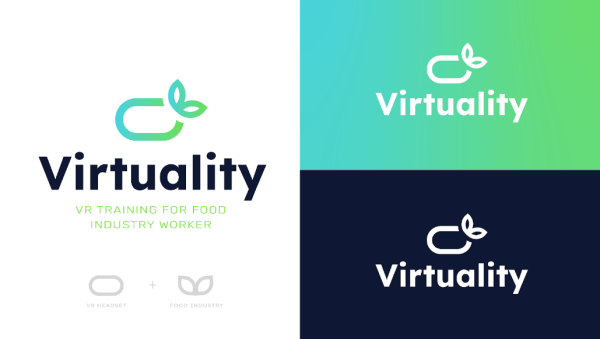 Virtual Reality Training für Beschäftigte in der Lebensmittelindustrie
Virtual Reality Training für Beschäftigte in der Lebensmittelindustrie
Das Projekt VIRTUALITY wird von dem europäischen Erasmus+ Programm co-finanziert und von ANIA (französischer Fachverband der Lebensmittelindustrie) koordiniert. Das Konsortium besteht aus französischen (OCAPIAT, EVAVEO), belgischen (ALIMENTO) und österreichischen (LVA) Projektpartnern. Ziel ist es, professionelle Virtual Reality Trainings speziell für Beschäftigte im Lebensmittelsektor zu erarbeiten.
Der Inhalt von VIRTUALITY:
Um die Attraktivität der Arbeitsgebiete in der Lebensmittelindustrie zu heben und den Bedarf an aktuell geforderten Fähigkeiten durch entsprechende Ausbildung abzudecken, muss die Berufsausbildung weiterentwickelt und modernisiert werden. Dabei gilt es, die Bedarfe und Neigungen von heranwachsenden Lernenden miteinzubeziehen. Hier tritt das Virtual Reality Training auf den Plan: diese innovative Trainingsmethode erfüllt den Professionalitätsbedarf auf mehrere Arten: die Trainingszeit wird reduziert, die Unfallgefahr erniedrigt, und durch den innovativen und attraktiven Aspekt des Tools/Instruments sprechen Benutzer*innen darauf gut an. Virtual Reality Training kann die Gewöhnung an eine Arbeitsumgebung erleichtern, indem auftretende Herausforderungen besser verstanden und gemeistert werden können.
Die Ziele von VIRTUALITY:
Die Entwicklung von innovativen digitalen Trainingstools für Beschäftigte in der Lebensmittelindustrie und die Anpassung der Berufsausbildung und Trainings an bestehende und zukünftige Bedarfe des Arbeitsmarktes.
Durch Virtual Reality eine Steigerung der Attraktivität von Trainings zu erreichen, um dadurch den Know-How Level der Beschäftigten zu erhöhen.
Unterstützung und Förderung der Mobilität der Beschäftigten – intern, aber auch auf europäischem Niveau.
Unterstützung der Entwicklung von sicheren und nachhaltigen Praktiken.
Die Zielgruppen von VIRTUALITY:
Das Projekt zielt in erster Linie auf Beschäftigte und Unternehmen im Lebensmittelsektor ab: Die Ergebnisse von VIRTUALITY sollen ihnen einen neuen Weg bieten, deren Trainings zu beschleunigen und deren Arbeitsmarktfähigkeit, vor allem in technischen Positionen, weiterzuentwickeln. Trainingszentren, die Ausbildungen für den Lebensmittelsektor anbieten, gehören ebenfalls zur Zielgruppe: Die Ergebnisse von VIRTUALITY können von diesen als neue Trainingsmethoden angeboten werden, die ins laufende Angebot integriert werden können.
I-RESTART
 Der Pact for Skill Roundtable sprach mehrere Probleme an, mit denen der Agrar- und Lebensmittelsektor konfrontiert ist, und identifizierte mögliche Wege zu ihrer Überwindung: Weiterqualifizierung und Umschulung von Arbeitnehmern; branchenübergreifender Kompetenztransfer; erhöhte Attraktivität des Sektors für Jugendliche; digitaler Übergang; Partnerschaften zwischen Bildungseinrichtungen und Unternehmen.
Der Pact for Skill Roundtable sprach mehrere Probleme an, mit denen der Agrar- und Lebensmittelsektor konfrontiert ist, und identifizierte mögliche Wege zu ihrer Überwindung: Weiterqualifizierung und Umschulung von Arbeitnehmern; branchenübergreifender Kompetenztransfer; erhöhte Attraktivität des Sektors für Jugendliche; digitaler Übergang; Partnerschaften zwischen Bildungseinrichtungen und Unternehmen.
Das I-RESTART-Projekt zielt darauf ab, die Arbeitskräfte im Agrar- und Veterinärsektor umzuschulen und weiterzubilden. Mitarbeiter, die die Schwerindustrie verlassen, können umgeschult werden, um sie im Agrar- und Lebensmittelsektor einzustellen. Studenten, die in den Agrar- und Lebensmittelarbeitsmarkt eintreten möchten, sollen unterstützen werden, ihre digitalen Fähigkeiten zu verbessern. Somit soll der Übergang zur Green-Deal-Initiative für alle erleichtert werden.
Um diese Ziele zu erreichen, wird I-RESTART den branchen- und generationsübergreifenden Kompetenztransfer durch die Einführung einer innovativen Mikro-Credentials-Methodik erleichtern, die integrative, flexible und ansprechende arbeitsbasierte Muster mit Mentoren bietet und gleichzeitig das Ökosystem auch für externe Arbeitnehmer öffnet .
Das Projekt, das den FIELDS Blueprint für Land- und Forstwirtschaft ergänzt, wird die Werkzeuge zur Bewältigung der zukünftigen Herausforderungen bereitstellen. Diese umfassen ein Angebot von 10 Berufsprofilen (EQR 4, 5 und 6) für insgesamt 3200 Ausbildungs- und 3600 Arbeitsstunden. Insgesamt 16 Ausbilder und 120 Auszubildende werden von der Pilotausbildung in 8 Ländern profitieren, und 40 Studenten werden das arbeitsbasierte Lernprogramm absolvieren, das auch fortgeschrittene unternehmerische Fähigkeiten umfasst und an dem 32 Mentoren beteiligt sind.
Das Konsortium aus 29 Partnern aus 11 Ländern wird die dafür benötigten Fähigkeiten und Wissenslücken identifizieren, Berufsprofile, sowie detaillierte Lehrpläne erstellen. Weiters werden europäische Strategien und 10 Länderfahrpläne entworfen, um die Bedürfnisse der Länder widerzuspiegeln und gleichzeitig die EU-Qualitätsstandards (ESCO, EQAVET) einzuhalten. Somit wird die Mobilität von Lernenden innerhalb Europas gefördert.
Es wird eine starke Verbindung mit der Initiative Pact for Skills hergestellt, um nützliche Inhalte für die Mitglieder zu erstellen, die den Pakt umsetzen werden.
WASTELESS
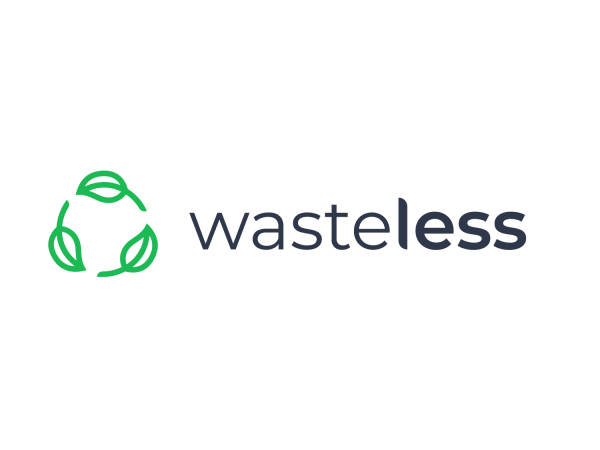 Das WASTELESS-Projekt zielt darauf ab, Lebensmittelverluste und -verschwendung (Food Loss and Waste - FLW) in der gesamten Europäischen Union zu reduzieren. Das Maß der Lebensmittelverschwendung in Industrieländern ist vergleichbar mit der Summe aller Lebensmittel, die in Subsahara-Afrika produziert werden, daher sind Maßnahmen zur Reduzierung, Umverteilung und Wiederverwendung von Lebensmittelabfällen dringend erforderlich. WASTELESS wird (1) innovative Werkzeuge und Methoden für die FLW-Messung und -Überwachung entwickeln, (2) einen harmonisierten methodischen Rahmen für die FLW-Quantifizierung erarbeiten und (3) eine systemische Toolbox zur Entscheidungsunterstützung entwickeln, die auf alle Interessengruppen der Lebensmittelwertschöpfungskette abzielt. Dies soll zu einer Reduzierung des FLW um mindestens 20 % jährlich nach Projektende führen. WASTELESS wird die „Farm2Fork“-Strategie nutzen, um die Ziele des „European Green Deal“ zu erreichen, die darauf abzielen, die Menge an Lebensmittelabfällen pro Kopf auf Einzelhandels- und Verbraucherebene bis 2030 zu halbieren. Darüber hinaus werden Erkenntnisse aus diesem Projekt, in den nächsten zehn Jahren, zur Reduzierung der Treibhausgasemissionen und zu globalen Strategien zur Eindämmung des Klimawandels beitragen.
Das WASTELESS-Projekt zielt darauf ab, Lebensmittelverluste und -verschwendung (Food Loss and Waste - FLW) in der gesamten Europäischen Union zu reduzieren. Das Maß der Lebensmittelverschwendung in Industrieländern ist vergleichbar mit der Summe aller Lebensmittel, die in Subsahara-Afrika produziert werden, daher sind Maßnahmen zur Reduzierung, Umverteilung und Wiederverwendung von Lebensmittelabfällen dringend erforderlich. WASTELESS wird (1) innovative Werkzeuge und Methoden für die FLW-Messung und -Überwachung entwickeln, (2) einen harmonisierten methodischen Rahmen für die FLW-Quantifizierung erarbeiten und (3) eine systemische Toolbox zur Entscheidungsunterstützung entwickeln, die auf alle Interessengruppen der Lebensmittelwertschöpfungskette abzielt. Dies soll zu einer Reduzierung des FLW um mindestens 20 % jährlich nach Projektende führen. WASTELESS wird die „Farm2Fork“-Strategie nutzen, um die Ziele des „European Green Deal“ zu erreichen, die darauf abzielen, die Menge an Lebensmittelabfällen pro Kopf auf Einzelhandels- und Verbraucherebene bis 2030 zu halbieren. Darüber hinaus werden Erkenntnisse aus diesem Projekt, in den nächsten zehn Jahren, zur Reduzierung der Treibhausgasemissionen und zu globalen Strategien zur Eindämmung des Klimawandels beitragen.
PLAN'EAT
PLAN’EAT (Food systems transformation towards healthy and sustainable dietary behaviour) 
Überall auf der Welt verlagern sich die Ernährungsmuster hin zu Öko-Agrar-Ernährungssystemen, die hohe gesundheitliche, gesellschaftliche und ökologische Kosten verursachen. Ohne eine wesentliche Änderung der aktuellen Trends werden nichtübertragbare Krankheiten (noncommunicable diseases - NCDs) weiter zunehmen, während die Qualität und Quantität der verfügbaren natürlichen Ressourcen abnehmen wird. Da das Ernährungsverhalten eine starke Determinante des Lebensmittelkonsums ist, stellt es einen zentralen Handlungshebel dar, um Lebensmittelsysteme zu verändern (und umgekehrt). Das Hauptziel von PLAN’EAT wird es sein, den Übergang zu HSDB (healthy and sustainable food behaviour) durch ein tiefgreifendes Verständnis der zugrundeliegenden Faktoren und Treiber und durch die Entwicklung wirksamer Empfehlungen, Instrumente und Interventionen für Akteure des Lebensmittelsystems zu fördern.
PLAN’EAT wird darauf abzielen, einen evidenzbasierten, mehrschichtigen und systemischen Ansatz mit mehreren Akteuren auf Makro- (Ernährungssystem), Meso- (Ernährungsumgebung) und Mikro- (individuelle) Ebene umzusetzen. Verschiedene soziokulturelle und geografische Kontexte werden berücksichtigt, indem 9 Living Labs (LLs) in verschiedenen europäischen Regionen, 4 europaweite Beratungs- und Arbeitsgruppen für die Lebensmittelwertschöpfungskette (Consultation and Working Groups - CWGs) und 1 Policy Lab implementiert werden. Im LL werden die Ernährungsmuster bestimmter Bevölkerungsgruppen abgebildet und in Bezug auf ökologische, sozioökonomische und gesundheitliche Auswirkungen durch True Cost Accounting (TCA) „monetarisiert“. Die Faktoren, die das Ernährungsverhalten mit dem höchsten Veränderungspotenzial (d. h. High-Impact-Verhalten) beeinflussen, werden analysiert. Die gewonnenen wissenschaftlichen Erkenntnisse werden in die gemeinsame Gestaltung von mehr als 10 effektiven Lösungen einfließen, die an unterschiedliche Kontexte und Endbenutzer angepasst sind und den PLAN’EAT-Projektergebnissen (PR) entsprechen.
LIKE-A-PRO
 LIKE-A-PRO zielt darauf ab, eine nachhaltige und gesunde Ernährung zu erleichtern, indem vielversprechende alternative Proteine und Nischen-Produkte in den Mainstream verlagert werden, um sie für alle Bevölkerungsgruppen (junge Menschen, Erwachsene, ältere Menschen, gefährdete Gruppen) verfügbarer, zugänglicher und akzeptabler zu machen, unabhängig vom sozioökonomischen Status, dem Geschlecht, Zugehörigkeit zu ethnischen Minderheiten, Leben in ländlichen oder städtischen Gebieten, etc.. Dies wird durch die Entwicklung von 16 Produkten, mit Zutaten aus 7 Proteinquellen (nachhaltig, EU-basiert, mit verbessertem Geschmack und verbesserter Textur) und durch FE-Lösungen zur Förderung alternativer Proteine erreicht, die gemeinsam mit ≈ 24.430 europäischen Bürgern und Akteuren der Gemeinschaft entwickelt und erforscht werden.
LIKE-A-PRO zielt darauf ab, eine nachhaltige und gesunde Ernährung zu erleichtern, indem vielversprechende alternative Proteine und Nischen-Produkte in den Mainstream verlagert werden, um sie für alle Bevölkerungsgruppen (junge Menschen, Erwachsene, ältere Menschen, gefährdete Gruppen) verfügbarer, zugänglicher und akzeptabler zu machen, unabhängig vom sozioökonomischen Status, dem Geschlecht, Zugehörigkeit zu ethnischen Minderheiten, Leben in ländlichen oder städtischen Gebieten, etc.. Dies wird durch die Entwicklung von 16 Produkten, mit Zutaten aus 7 Proteinquellen (nachhaltig, EU-basiert, mit verbessertem Geschmack und verbesserter Textur) und durch FE-Lösungen zur Förderung alternativer Proteine erreicht, die gemeinsam mit ≈ 24.430 europäischen Bürgern und Akteuren der Gemeinschaft entwickelt und erforscht werden.
Um dieses Ziel zu erreichen, umfasst das LIKE-A-PRO-Konsortium 42 Unternehmen – Vertreter entlang der gesamten alternativen Proteinwertschöpfungskette (Proteinproduzenten, Zutaten- und Produktentwickler, kulinarische Zentren, Lebensmittelcluster), Wissenschaftler sowie Markt- und Kommunikationsexperten. Der Anwendungsbereich wird durch direktes Engagement von Bürgern, Industrie, Verarbeitern, Einzelhändlern, Lebensmitteldiensten, Köchen und Caterern über das Konsortium hinausgehen.
Das Projekt umfasst 7 vielversprechende alternative Proteine (2 auf Pflanzenbasis, 1 auf Mikrobenbasis, 1 auf Ozeanbasis, 2 auf Pilzbasis, 1 auf Insektenbasis) mit unterschiedlichem Entwicklungsstatus, gruppiert in 3 Entwicklungskategorien:
- Marktverfügbare Produkte – Für diese marktverfügbaren alternativen Proteinprodukte, die immer noch eine Nische darstellen, soll das grundsätzliche Verständnis für ihren Platz in unterschiedlichen Lebensmittelumfeldern (z.B: Caterings, Supermärkte, Restaurants) geschaffen und Faktoren für relevante Konsumentenentscheidungen definiert werden.
- Laufende Entwicklungen – Ihr regulatorischer Weg wurde freigegeben (z. B. keine Notwendigkeit einer Zulassung durch die Europäische Behörde für Lebensmittel- und Sicherheitsbehörde – EFSA), aber sie benötigen F&E-Unterstützung, um industrie- und marktreif zu werden.
- Zukunftstrends – Diese Zukunftstrends, die sich in einem frühen Entwicklungsstadium befinden, benötigen Unterstützung bei der Bewertung ihrer technischen, wirtschaftlichen, marktbezogenen und regulatorischen Machbarkeit, einschließlich Verbrauchertests.
NOVAFOODIES
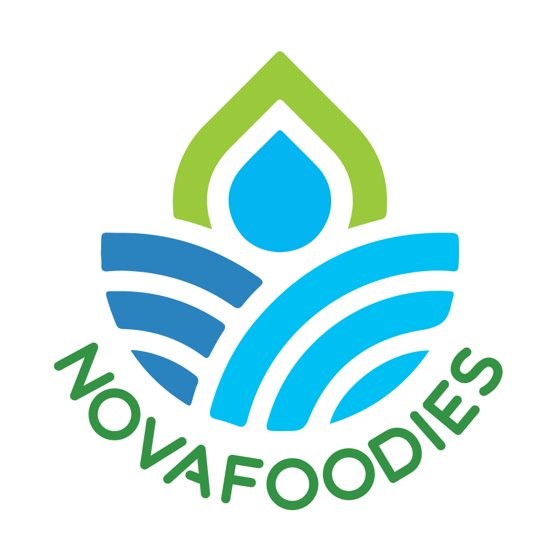
Demonstration of innovative functional food production systems based on a more sustainable value chain of marine and freshwater raw materials for conscientious European consumers.
Überfischung und die damit zusammenhängenden Auswirkungen auf das Ökosystem sind seit vielen Jahren stetiges Thema im wissenschaftlichen Diskurs des Umweltschutzes. In vielen Gebieten kommt es zu extremen Eingriffen in das natürliche Gleichgewicht, der sogenannten trophischen Stufen. Unter diesen versteht man die natürliche Gliederung der Produzenten (Algen, Pflanzen, Mikroorganismen, etc.), der primären Konsumenten (konsumieren Produzenten, z.B. Doktorfische, Papageienfische, etc.) und der sekundären/tertiären Konsumenten (konsumieren Konsumenten, z.B. Haie) zu einer Nahrungspyramide. Wird aus einer dieser Stufen eine bestimmte Art überfischt, z.B. eine Art der Konsumenten, kommt es zu starker Überwucherung der Produzenten (z.B. Wucherung der Algen) und zum Sterben der sekundären oder tertiären Konsumenten.
Das interdisziplinäre HORIZON-IA Projekt „NOVAFOODIES“ setzt sich mit dieser Thematik auseinander: durch innovative Zucht von Wasserorganismen, der sogenannten „Integrated Multi-Trophic Aquaculture“ (IMTA) soll im selben Lebensraum die Anzucht verschiedener Organismen gefördert werden. Mit dieser neuen Art der Fischproduktion, die bereits seit längerem diskutiert wird, stellt man somit künstlich das „natürliche“ Gleichgewicht ein. Im Rahmen von NOVAFOODIES wird IMTA in sieben verschiedenen Case Studies in Europa, Israel und China getestet.
Weiters werden im Projekt innovative Methoden der Lebensmittel- und Verpackungsherstellung erforscht und etabliert, damit neue Produktgruppen, z.B. Produkte aus Algen- und Fischerzeugnissen auf dem Markt erfolgreich angeboten werden können. Erzeugnisse, welche vormals als Abfälle angesehen wurden, sollen unter anderem als nährstoffreiches Fischfutter verwertet werden. Im Rahmen des Projektes wird großer Wert auf die Lebensmittelsicherheit im Bereich der Fischzucht und Aquakultur gelegt sowie auf die Ermöglichung der lückenlosen Rückverfolgbarkeit. So wird sichergestellt, dass nur hochqualitative Produkte erzeugt und auf den Markt gebracht werden, während der Fortbestand aller Wasserorganismen nachhaltig gefördert wird.
NOVAFOODIES wird von der spanischen Forschungseinrichtung IDENER koordiniert und besteht aus 28 Konsortiumspartnern, die aus Europa, China und Israel stammen. Die Lebensmittelversuchsanstalt wird im Projekt vor allem an der Erarbeitung von Trainingsmaterialien, Seminaren, Workshops und (Online-) Kursen mitwirken, um Köchen und Lebensmittelproduzenten die neu entwickelten Lebensmittel näher zu bringen.
e-Safe
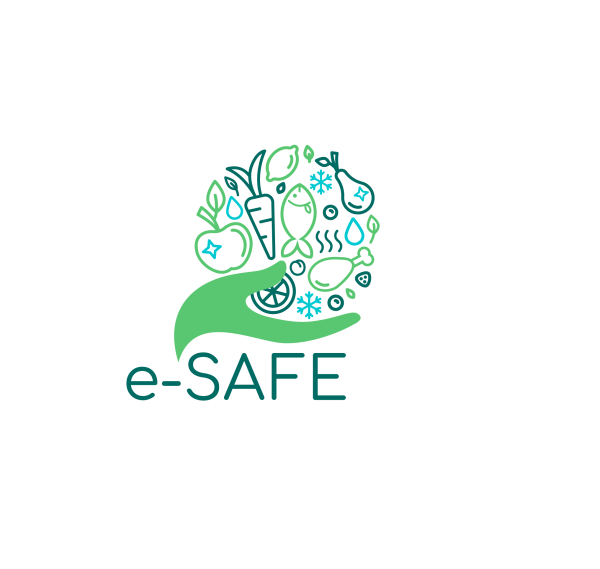
Enhance Safer & Healthier Meals through Food Handlers’ Education and Training
Das 34-monatige Erasmus+ KA2-Projekt e-SAFE - Enhance Safer & Healthier Meals through Food Handlers' Education and Training, das im November 2020 begann, wurde im August 2023 abgeschlossen. Das e-SAFE Projekt bietet ein umfassendes Schulungsprogramm für Köche und Köchinnen, Küchenpersonal, Verkaufsstellenleiter und Verkaufsstellenleiterinnen sowie Beschäftigte in der Lebensmittelverarbeitung in ganz Europa und zielt darauf ab, ihr Wissen und ihre Fähigkeiten in der Prävention von lebensmittelbedingten Krankheiten und deren Auswirkungen auf die öffentliche Gesundheit zu verbessern.
Das e-SAFE-Schulungspaket ist das Ergebnis umfangreicher Primär- und Sekundärforschung zu den bestehenden Schulungsmöglichkeiten für Beschäftigte im Lebensmittelsektor in Europa und darüber hinaus. Die 7 Schulungsmodule basieren auf den Bedürfnissen, die bei der Voruntersuchung festgestellt wurden. Der Schwerpunkt liegt auf Gesundheits- und Sicherheitsgrundlagen, dem Krisenmanagement im Sanitärbereich, Nährstoffen, Lebensmittelallergien, Mykotoxinen, Transfettsäuren und chemischen Gefahren. Alle ursprünglich in englischer Sprache erstellten Schulungsmaterialien kombinieren sowohl theoretische als auch praktische Aktivitäten. Sie wurden sowohl von Forscherinnen und Forschern als auch von Fachleuten des Lebensmittelsektors getestet und in alle Partnersprachen (Deutsch, Griechisch, Italienisch, Litauisch und Polnisch) übersetzt. Der Kurs ist über die E-Learning-Plattform des Projekts verfügbar: https://e-safe-project.eu/e-learning-platform/. Die Partner haben außerdem ein Dokument mit Anleitungen und Empfehlungen für Ausbilderinnen und Ausbilder in der beruflichen Bildung entwickelt, um sowohl die Ausbildenden in der beruflichen Bildung, Beschäftigte des Lebensmittelsektors sowie all jene Personen zu unterstützen, die an der Teilnahme am e-SAFE-Kurs interessiert sind.
Microplexfood
Das CORNET-Projekt „Microplexfood“ wurde gestartet, um den Eintrag von Mikroplastik in komplexen Lebensmitteln zu bestimmen. Österreichische (ACR Institute ofi und LVA) und deutsche Partner arbeiten an einer innovativen Möglichkeit um Kunststoffe, ohne ihre Form oder eine andere Beschaffenheit zu verändern, in Lebensmitteln zu analysieren. So soll es möglich werden, die im Lebensmittel enthaltenen Kunststoffpartikel einer Kunststoffart und einer Form zuzuordnen. Mit Hilfe dieser Charakteristika, kann man detaillierte Aussagen über die mögliche Herkunft der Partikel, den Eintragungsweg und die möglichen Auswirkungen auf die Umwelt und den Menschen treffen.
Microplexfood ist ein Nachfolger des Microplastic@food Projekts, das einfache Lebensmittel wie Trinkwasser, Salz, Zucker, klare Säfte und die Oberflächen von Lebensmitteln auf den Gehalt von Mikroplastik untersuchte.
Nun soll das Folgeprojekt komplexere Strukturen in Angriff nehmen, wie zum Beispiel Fisch, Fleisch und Fleischwaren, trübe Säfte, Milch und Milcherzeugnisse, Backwaren, etc. Diese Lebensmittel werden als „komplex“ angesehen, da eines oder mehrere der folgenden Merkmale auf sie zutreffen: schwer/nicht wasserlöslich, Aufbau aus mehreren Bestandteilen, bzw. aus einem stabilen Geflecht von Verbindungen.
Die Analyse der Partikel erfolgt mittels höchstmoderner Geräte, die Mikroskopie und FTIR-Messungen miteinander vereinen.
Ziel des Projektes ist die erfolgreiche Entwicklung einer soliden Untersuchungsmethode für Mikroplastik. Damit wird zukünftig ein entscheidender Beitrag zur Determination des Grades an Mikroplastikexposition in Lebensmitteln geleistet.
SecureFood

SecureFood verfolgt einen integrierten, systemorientierten Ansatz, der die Komplexität von Lebensmittelsystemen erkennt und aufgreift. Das gesamte Netzwerk von Akteuren, Elementen, Aktivitäten, Prozessen, Infrastrukturen und wesentlichen Dienstleistungen wird im Hinblick auf die Produktion und Lieferung von Lebensmitteln betrachtet. Vor diesem Hintergrund soll SecureFood mehrere Akteur*innen der Lebensmittelversorgungskette zusammenbringen, wie z. B. herstellende Betriebe, den Lebensmittel- und Getränkeindustrie - Einzelhandel und Verbraucher*innen, aber auch Elemente, die das Funktionieren der Versorgungskette unterstützen, wie z. B. Massengutfrachter und Straßentransportunternehmen. Das Akteur*innennetz umfasst auch Ministerien und ihnen unterstellte Einrichtungen, die für die Koordination der nationalen Bemühungen zur Stärkung der Widerstandsfähigkeit zuständig sind. Ziel ist es, die Herausforderungen im Bereich der Ernährungssicherheit zu bewältigen, indem ein Ökosystem aus wissenschaftlichen Erkenntnissen, kollaborativen Prozessen und digitalen Instrumenten geschaffen wird.
MICROBIOMES4SOY

Der Übergang zu Nahrungsmittelsystemen auf der Basis pflanzlicher Proteine ist gefordert.
Das Projekt MICROBIOMES4SOY zielt darauf ab Lebens- und Futtermittelsysteme durch den Einsatz von Mikrobiomen in der Sojaproduktion nachhaltiger und gesünder für Tier, Mensch und Umwelt zu gestalten. Ziel des Projekts ist es, den Übergang zu pflanzlichen Proteinquellen im Sinne der von der EU definierten „Transition Pathways“ zu unterstützen in dem eine umfassende Betrachtung der Mikrobiome entlang der Lebens- und Futtermittelketten durchgeführt wird. Mithilfe aller Akteur*innen des Ernährungssystems wird maßgeblich dazu beigetragen die Prioritäten von FOOD 2030 und der UN sustainable development goals zu erreichen.
Mikrobiome spielen entlang der gesamten Lebensmittelkette eine tragende Rolle: Von der Primärproduktion, wo Mikroben das Pflanzenwachstum und die Gesundheit verbessern, über die Lebensmittelproduktion basierend auf mikrobiellen Prozessen bis hin zu Wechselwirkungen zwischen tierischen/menschlichen Mikrobiomen und der Gesundheit des Wirts.
MICROBIOMES4SOY konzentriert sich auf das Modellsystem Sojabohne als wichtige proteinreiche Kulturpflanze. Das Projekt wird Mikrobiomanwendungen der zweiten Generation entwickeln, die die Pflanzenproduktivität, den Nährwert und die Sicherheit von Sojabohnensamen verbessern. Dies wird unter unterschiedlichen Umgebungsbedingungen getestet. Zusätzlich werden die Wirkung einer diätetischen Intervention auf Basis von Sojabohnenprotein getestet, die Auswirkungen auf das menschliche Darmmikrobiom untersucht und mikrobiombasierte Ernährungsempfehlungen erarbeitet. Das Projekt wird außerdem mikrobiombasierte Lösungen entwickeln, um neuartige Futtermittel für den aquatischen Einsatz zu entwickeln und deren Auswirkungen auf das Mikrobiom des Fischdarms zu ermitteln.
Das MICROBIOMES4SOY-Konsortium besteht aus 18 Partnern aus zehn Ländern, die komplementäres Fachwissen zu Boden, Pflanze, menschliche und tierische Mikrobiome, Bioinformatik, Modellierung, Pflanzenproduktion, Aquakultur, Lebensmittel-/Futtermittelproduktion, Lebensmittelsysteme-Kartierung und wissenschaftliche Kommunikation einbringen.
Aktuelle ACR-Projekte
LEIFS – „Let if flow safely“
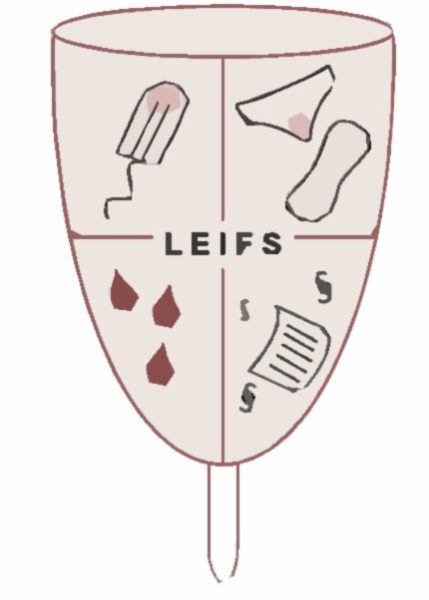
Für Menstruationshygieneprodukte gibt es derzeit keine anwendbaren spezifischen gesetzlichen Anforderungen und keine europäischen Normen zur Bewertung der Sicherheit. Für traditionelle Einwegprodukte gibt es zwar erste Ansätze, diese Konzepte sind jedoch nicht länderübergreifend anwendbar. Für viele innovative Mehrweg-Menstruationshygieneprodukte gibt es keine Tests, um ihr Risiko zu messen und zu bewerten.
Der Aufruf zum Handeln zur Bewältigung dieses Themas erfolgte durch die ISO, durch die Einrichtung einer neuen Arbeitsgruppe – mit dem Ziel, einen Standard für die Sicherheitsbewertung von Menstruationshygieneprodukten zu veröffentlichen. Hier setzt unser Beitrag an.
Das Projekt „LEIFS“ will eine wissenschaftliche Basis schaffen: Im Rahmen des Projekts werden Methoden zur Bewertung der Produktsicherheit entwickelt – hiermit leisten wir auch Input für die ISO-Normenarbeitsgruppe.
Für die Erstellung von „Anforderungsprofilen“ und für die Entwicklung einer Bewertungsstrategie hoffen wir (Projektpartner: Lebensmittelversuchsanstalt, OFI (Österreichisches Forschungsinstitut für Chemie und Technik) und IWI (Industriewissenschaftliches Institut)) auf eine breite Stakeholder-Beteiligung (Hersteller, Händler, Rohstofflieferanten, etc.).
Projektinhalt:
- Definition von Anforderungsprofilen für die Sicherheitsbewertung von Menstruationshygieneprodukten
- Entwicklung einer Prüfstrategie zur Sicherheitsbewertung von Menstruationshygieneprodukten (chemische Sicherheit, mikrobiologische Sicherheit, Sicherheit der Wiederaufbereitung)
BioProfit
BioProfit entwickelt ein wirtschaftliches Verfahrenskonzept zur Aufbereitung von Gärresten mittels Flüssigkeitsabtrennung und Membrandestillation. Die Flüssigphase wird gesäubert und rezykliert, außerdem werden hochwertige Düngemittel und Humus produziert. Der im Humus gespeicherte Kohlenstoff wird dem CO2-Kreislauf entzogen, wodurch CO2 Zertifikate verkauft werden können. Die ARGE Biga-Net wird um die neuen Mitglieder ZFE, LVA und AEE Intec, sowie um zahlreiche Kompetenzen (Modul Gärrestaufbereitung) erweitert, wodurch das FEI-Dienstleistungsangebot für Biogasanlagenbetreiber und Anlagenbauer deutlich gestärkt wird.
MicroPic
 Im Zentrum des strategischen ACR-Projektes „MicroPIC“ (Kurztitel für Microscopy For Plastics In Cereals) steht die Entwicklung korrelativer, bildgebender und spektroskopischer Methoden und entsprechender Work-flows zur Detektion von Mikro- und Nanoplastik in Getreidepflanzen mittels (Elektronen)mikroskopischer Techniken.
Im Zentrum des strategischen ACR-Projektes „MicroPIC“ (Kurztitel für Microscopy For Plastics In Cereals) steht die Entwicklung korrelativer, bildgebender und spektroskopischer Methoden und entsprechender Work-flows zur Detektion von Mikro- und Nanoplastik in Getreidepflanzen mittels (Elektronen)mikroskopischer Techniken.
Damit soll die Möglichkeit geschaffen werden, bestehenden und zukünftigen Kunden und Forschungspartnern unter anderen aus den Wirtschaftsfeldern
- Agrarindustrie
- Lebensmittelproduktion
- Kunststofferzeugung
- Zellstoffverarbeitung
Zugang zu den entwickelten Methoden zu geben, und neue Charakterisierungsverfahren zur Verfügung zu stellen, die effizient und treffsicher das Vorliegen problematischer Partikel ortsaufgelöst nachweisen und aufzeigen können. Die erarbeiteten Untersuchungstechniken sollen am Ende des Projekts in das Methodenportfolio des ZFE übergeführt werden.
Die intendierte Projektkooperation mit der Versuchsanstalt für Getreideverarbeitung (ÖMV-vg) sowie der Lebensmittelversuchsanstalt (LVA) ermöglicht darüber hinaus Informationen zum Einfluss von Mikro- und Nanoplastik auf Änderungen der Konsistenz von Getreideprodukten, wie beispielsweise Mehle und Teige, zu genieren.
Das experimentelle Design sieht vor, durch bewusstes Einbringen von gelabeltem Mikro- und Nanoplastik in den Nährstoffkreislauf (Boden oder Nährlösung) während des Ziehens der Getreidepflanzen sowohl die Methodik in Bezug auf die Sensitivität und Detektierbarkeit von Plastikpartikeln in einer biologischen Matrix anzupassen und zu optimieren als auch die Aufnahme der Partikel in die Pflanze während des Wachstums von der Wurzel bis möglicherweise ins Korn konkret verfolgen zu können.
Die Verschmutzung durch Mikro- und Nanoplastik ist irreversibel und verursacht beträchtliche Umweltschäden, mit schwerwiegenden Folgen für Lebewesen. Obwohl Europa- und weltweit umfassende Beschränkungen erlassen werden oder zumindest geplant sind, ist die wissenschaftliche Aufarbeitung des Themas in keiner Weise abgeschlossen. Die Gründe dafür liegen mitunter in der mangelnden Eignung existierender Charakterisierungstechniken für Mikro-und Nanoplastikteilchen und in der geringen Vernetzung verschiedener thematisch befasster Sektoren. Das Projekt MicroPIC versucht durch seine Kooperationspartner diesem Umstand Rechnung zu tragen, und Beiträge zu diesem äußerst gesellschaftsrelevanten Thema zu erarbeiten.
PEX-Net
 Für den sich dynamisch entwickelnden Markt der Pflanzenextraktion werden vom Markt geforderte FEI-Dienstleistungen, u.a. zur Extraktherstellung und -optimierung (Versuchsdurchführung und Analyse) erarbeitet. Eine gemeinsame Laboranlage für die Extraktion mit n-Butan als Lösungsmittel wird angeschafft.
Für den sich dynamisch entwickelnden Markt der Pflanzenextraktion werden vom Markt geforderte FEI-Dienstleistungen, u.a. zur Extraktherstellung und -optimierung (Versuchsdurchführung und Analyse) erarbeitet. Eine gemeinsame Laboranlage für die Extraktion mit n-Butan als Lösungsmittel wird angeschafft.
Für die gewonnenen Extrakte werden Qualitätsparameter bestimmt, und die Ergebnisse in einer Datenbank aufbereitet. Das gewonnene Know-how wird österreichischen KMU mithilfe eines über die eigene Webpage zugänglichen One-Stop-Shops verfügbar gemacht.
Zusätzlich wird das erarbeitete Know-how in Form von wissenschaftlichen Publikationen oder Berichten veröffentlicht, um sich auch auf internationaler Ebene zu zeigen.
Zur Webpage: www.pexnet.at
Sie haben Fragen? Wir beraten Sie gerne.
